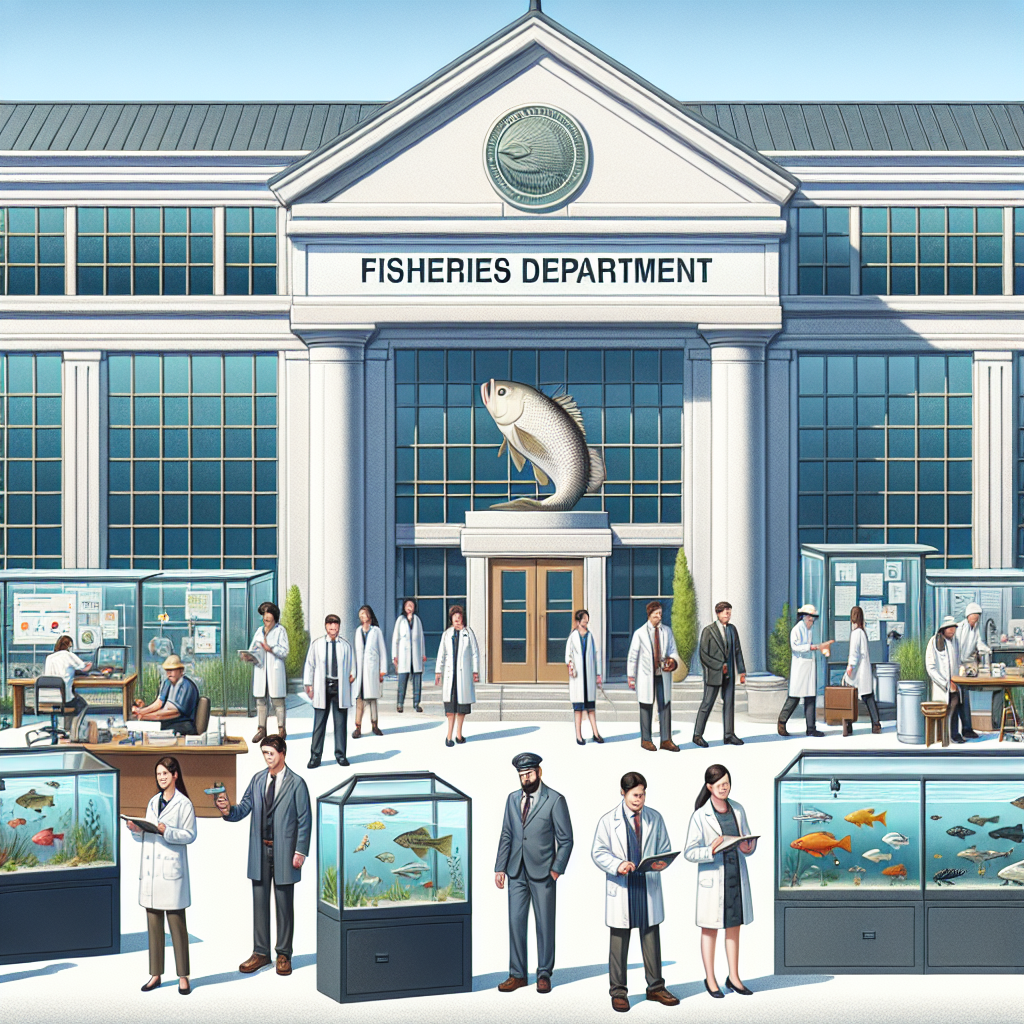World Fisheries Day 2024 Celebrates India’s Blue Transformation: Empowering Small-Scale and Sustainable Fisheries
The day concluded with an emphasis on partnerships, capacity-building, and leveraging technology to create a resilient and prosperous future for the global fisheries sector.

- Country:
- India
The Department of Fisheries, under the Ministry of Fisheries, Animal Husbandry & Dairying (MoFAH&D), celebrated World Fisheries Day 2024 with the theme “India’s Blue Transformation: Strengthening Small-Scale and Sustainable Fisheries” at the Sushma Swaraj Bhawan, New Delhi.
The event was inaugurated by Shri Rajiv Ranjan Singh alias Lalan Singh, Union Minister for MoFAH&D and Ministry of Panchayati Raj, alongside Shri George Kurian, Prof. S.P. Singh Baghel, and other dignitaries. Industry leaders, scientists, and policymakers convened to discuss transformative strategies for India's fisheries sector, emphasizing small-scale farming and sustainable practices.
Several landmark initiatives were launched, including:
5th Marine Fisheries Census: A comprehensive effort to collect data for policymaking and resource management.
National Plan of Action on Sharks: Promoting shark conservation aligned with international protocols.
Endorsement of Regional Plan of Action on IUU Fishing: India’s commitment to combat illegal, unreported, and unregulated fishing.
IMO-FAO GloLitter Partnership Project: Aimed at reducing marine litter from the fisheries and shipping sectors.
These projects underscore India’s commitment to sustainable fisheries development while addressing environmental concerns and enhancing global cooperation.
Technical Sessions: Exploring Challenges and Innovations
Session 1: South-South and Triangular CooperationThis session focused on fostering food safety and security through sustainable fisheries and aquaculture. Experts shared strategies to promote small-scale farming, alternative livelihoods, and food security.
Dr. Manuel Barange (FAO, Rome) emphasized India’s role in South-South Cooperation (SSTC) and the Blue Transformation Program, highlighting India’s potential as a global leader in fisheries services.
Dr. P. Krishnan (BOBP-IGO) discussed challenges in small-scale fisheries, including climate vulnerabilities, and proposed solutions such as dedicated supply chains and energy-efficient craft.
Dr. N.P. Sahu (CIFE, Mumbai) highlighted the importance of alternative livelihoods like aquaculture and seaweed farming to address overfishing and climate impacts.
Dr. Subhodeep Ghosh (ICAR) presented sustainable marine fisheries management approaches, emphasizing ecosystem-based practices.
Dr. Nidhi Jain (Bill & Melinda Gates Foundation) discussed leveraging fisheries for food security through sustainable practices and digital innovations.
Session 2: Climate Change Challenges
The second session addressed climate change impacts on fisheries and aquaculture, emphasizing resilience and adaptation strategies.
Dr. J.K. Jena (ICAR) provided an overview of climate change effects on fish habitats and ecosystems, advocating for sustainable management and pollution-free practices.
Mr. Jose Estors Carballo (FAO) shared insights on Smart Fishing Harbours, promoting global knowledge sharing and sustainable port management.
Ms. Kari Synnøve Johansen (NORAD, Norway) highlighted the Glolitter Project to prevent marine litter, showcasing India’s active participation.
Dr. Vinod K. (CMFRI, Tamil Nadu) emphasized the role of seaweed farming in carbon sequestration and climate mitigation.
Dr. Ranjit Suselan (MSC India) discussed the importance of standards, certification, and traceability in promoting sustainable fisheries and enhancing trade.
Mr. Mohammad Aatish Khan (NatureDots) presented AquaNurch Digital Twin, a cutting-edge tool to mitigate aquaculture risks and enhance climate resilience.
Global and National Impact
The event showcased India’s leadership in promoting sustainable fisheries, integrating innovative technologies, and addressing global challenges like climate change and overfishing.
Shri Rajiv Ranjan Singh emphasized the government’s commitment to achieving the Blue Economy vision, focusing on empowering small-scale fishers and adopting sustainable practices.Shri George Kurian highlighted the socio-economic benefits of fisheries, urging collective efforts to address sectoral challenges.
The day concluded with an emphasis on partnerships, capacity-building, and leveraging technology to create a resilient and prosperous future for the global fisheries sector.
World Fisheries Day 2024 exemplified the synergy between policy, science, and innovation, marking a significant step in India’s journey toward sustainable fisheries management and a thriving Blue Economy.
- READ MORE ON:
- World Fisheries Day










